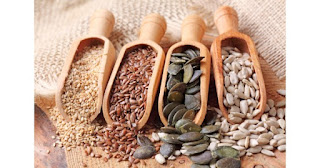Hybrid Seeds Increase Yields and Develop Disease Resistant Plants in Commercial Settings
Hybrid seeds are created by cross-reproducing plants (at least two plants) of various species. Cross-pollinated will build up a seed that conveys at least one wanted characteristics. These seeds are generally utilized in cultivating (business) to expand yields and to create environment and sickness safe plants. In addition, these seeds are broadly utilized in cultivating and planting of vegetables and blossoms like sweet corn tomatoes, and roses. Hybrids are picked to improve the attributes of the subsequent plants, for example, better organic product quality, better consistency, warmth and cold resistance, early development, expanded yield, and so on
Expanding interest for vegetables and organic products from arising economies is relied upon to build the interest for hybrid seeds. Hybrid seeds are the significant supporters of the ascent in horticultural yield since the 20th century. A few reproducing organizations are centered around building up the resultant harvests impervious to sicknesses through broad innovative work exercises. Nonetheless, the advancement of such seeds might be blocked under unfavorable climatic conditions. In 2018, a German organization dispatched a hybrid rice seed with vigorous resilience to Brown Plant Hopper bothers and Bacterial Leaf Blight.
In May 2020, Mexican specialists built up a progression of corn assortments (corn seeds) with better yields and protection from infections. Also, in April 2020, two new rearing experts joined Japan Vegetable Seeds. One of them has licensed new hybrid seed determination and improvement strategies and created procedures and biotechnologies to create items fully expecting client prerequisites. Hybrid seeds are treated with compound, physical, and natural specialists to develop sound yields and shield them from creepy crawlies and bugs. Long haul hybrid seed can be put away for around 4 years and that's only the tip of the iceberg, medium term hybrid seed can be amassed up to 12 to three years and transient hybrid seed can be stockpiled up to 9 to a year.




Comments
Post a Comment